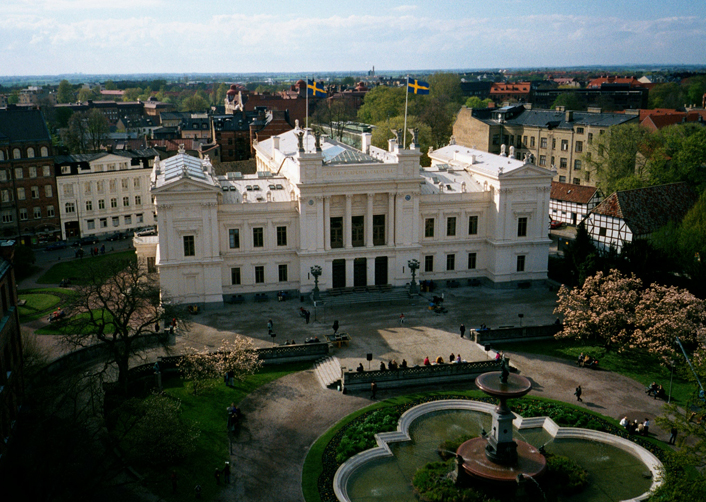Lund University was founded in 1666 and is repeatedly ranked among the world’s top 100 universities. The University has around 44 000 students and more than 8 000 staff based in Lund, Helsingborg and Malmö. We are united in our efforts to understand, explain and improve our world and the human condition.
Lund University welcomes applicants with diverse backgrounds and experiences. We regard gender equality and diversity as a strength and an asset.
The Division of Atomic Physics is a part of the Department of Physics at Lund University. In our workplace teachers, researchers, post-doctoral fellows and PhD students work together with other staff within the division. Together we are 45 employees and we are a division where our supportive and collegial work environment is valued. The Division of Atomic Physics is also part of the Lund Laser Centre (LLC), the largest unit in the Nordic countries within the field of lasers and optics and a European Large-Scale Infrastructure. A spearhead of the LLC is the Lund High-Power Laser Facility, which includes several state-of-the-art femtosecond laser systems. At the High-Power Laser Facility, research is performed on the generation and application of extremely short light pulses.
The division of Atomic Physics hosts the High-Power Laser Facility, which includes several state-of-the-art femtosecond laser systems:
- A 40 TW titanium-sapphire laser system, which will be replaced in 2022 by an Optical Parametric CPA (OPCPA) laser system delivering CEP-stable pulses with less than 10 fs duration at a central wavelength of 850 nm with two separate outputs: one with a repetition rate of 100 Hz and 50 mJ per pulse, and one with a repetition rate of 10 Hz and 250 mJ per pulse.
- A state-of-the-art phase stabilized titanium-sapphire CPA system, emitting up to 5 mJ, 20 fs pulses at 3 kHz repetition rate. The central wavelength and the spectral bandwidth are tunable around 800 nm.
- A 40 fs, 10 mJ kHz titanium-sapphire laser used to drive an electron diffraction set-up.
- A CEP phase-stabilized, 850 nm, 7 fs, 200 kHz, 20 mJ, laser system based on optical parametric chirped pulse amplification, with a mid-IR laser option at 1.8 mm.
- An ytterbium-doped CPA laser, with tunable repetition rate (1-200 kHz), emitting 170 fs at 1030 nm with up to 1 mJ pulse energy (below 5 kHz).
Presently, a research engineer assures the maintenance and upgrade of our largest laser system, while the other systems are being operated on a daily basis mainly by PhD students and postdocs. Our aim is to ensure the operation, maintenance and continuous upgrade of our present and future laser systems, as well as to provide technical support to users at our laser facility. For these reasons, we open a position as research engineer in ultrafast laser technology.
Work duties
As research engineer you will work together with the present research engineer and be in charge of the maintenance, safe operation and continuous upgrade of the laser systems at the Lund High-Power Laser Facility. You will work with implementation and development of temporal/spatial diagnostics, carrier-envelope phase stabilization, control/automation of optical devices and equipment, and, in general, research and development in advanced laser setups.
As a research engineer, you will work in close collaboration with PhD students and postdocs on optics and lasers at the High-Power Laser Facility. You will support external users during national/international experimental campaigns. Competence development such as participating in research projects can be up to 10% of the position.
Qualifications
A requirement for the employment is expertise in laser physics and ultrafast optics as well as experience with femtosecond lasers.
- A Master degree (or equivalent) in Physics, with Optics specialty, or in Photonics
- Several years hands-on experience with amplified femtosecond laser systems.
- Experience of problem solving in connection with operation an service of highpower/femtosecond laser systems.
- Ability to work dynamically in a team with other occupational groups such as Researchers.
- Ability to work independently.
- Experience and ability to carry out several projects in parallel.
- Good knowledge in written and spoken English.
Other merits
- A PhD degree in Physics, Optics or Electrical Engineering.
- Experience in ray tracing, mechanical design, vacuum techniques, control/automation software and/or electronics are additional merits.
We will place great emphasis on personal suitability. Consideration will also be given to good collaborative skills, drive and independence, and how the applicant’s experience and skills complement and strengthen the work within the division, as well as contribute to its future development.
Terms of employment
Permanent position, 100 %. Probationary employment might be applied.
Instructions on how to apply
Applications should include a cover letter stating the reasons why you are interested in the position and in what way the employment corresponds to your qualifications. The application should also contain a CV, degree certificate or equivalent, and other documents you wish to be considered (grade transcripts, contact information for your references, letters of recommendation, etc.).
| Type of employment | Permanent position |
|---|---|
| Contract type | Full time |
| First day of employment | As soon as possible |
| Salary | Monthly salary |
| Number of positions | 1 |
| Working hours | 100 % |
| City | Lund |
| County | Skåne län |
| Country | Sweden |
| Reference number | PA2021/3319 |
| Contact |
|
| Union representative |
|
| Published | 29.Nov.2021 |
| Last application date | 20.Jan.2022 11:59 PM CET |


